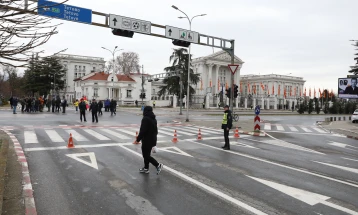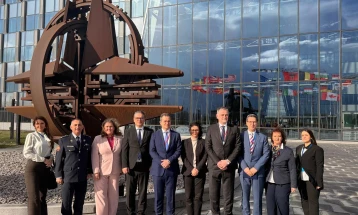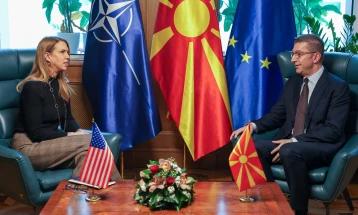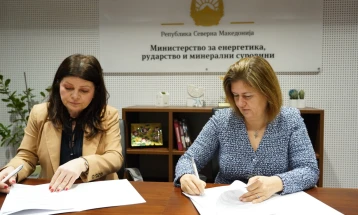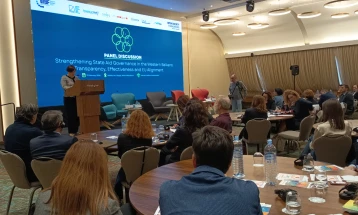Macedonian citizens shop online once or twice in three months: e-commerce conference
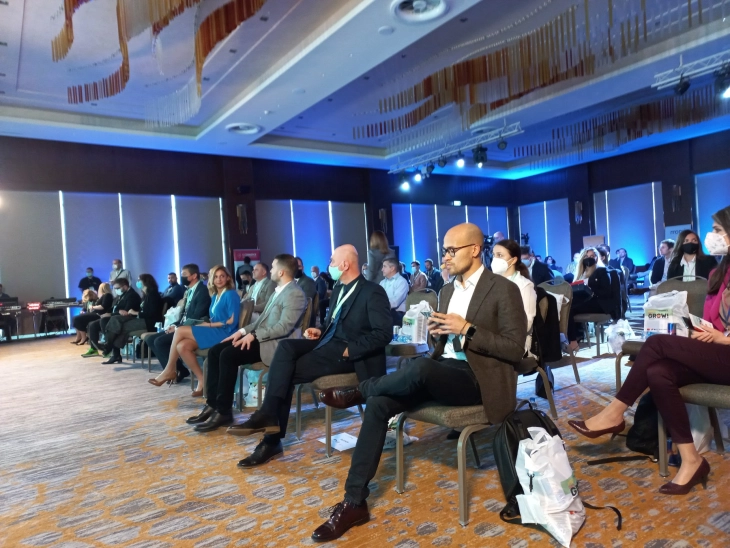
Skopje, 12 November 2021 (MIA) – The COVID-19 pandemic significantly altered the structure of online transactions in North Macedonia. Prior to it, citizens shopped from abroad, while now they shop locally, an encouraging fact that benefits domestic online sellers, E-Commerce Association President Nina Angelovska told the opening of the 4th Annual Conference on E-Commerce on Friday, held in hybrid format in Skopje under the slogan “Ready, Set, Grow.”
“74% of all online orders are now from domestic sellers compared to the 40% two years ago. 2020 saw a three digit growth in the number of purchases from domestic online sellers, while in the first half of 2021 they increased by 77%,” Angelovska said.
She added that according to E-Commerce Association data, Macedonian citizens on average shop online once or twice every three months, which is the lowest rate in Europe.
“Macedonian citizens rarely shop online. Over 70% of the population place only one or two orders in three months. Orders usually amount up to EUR 50, similar to those placed from neighboring countries. People in North Macedonia, like those across Europe, most often buy clothes and sporting equipment. However, compared to the rest of the region, they buy the least furniture, household items and food,” Angelovska underlined.
Aside from shopping, Macedonians spend the most time online on social media, making North Macedonia a leader in Europe in posting photos, texts and other personal content.
“North Macedonia and the rest of the region are lagging behind in use of e-banking. Moreover, there hasn’t been any significant progress in indexes measuring e-commerce development potential and network readiness. We’re ready, but there’s still a lot of work to be done. The Association is aware of the numerous obstacles and challenges and we continue to work towards change and creating favorable conditions for e-commerce. Using this moment to speed up the transformation towards digital society is key,” Angelovska said.
In regard to internet penetration in the region, Kosovo has made the most significant progress with a rate of 96%. North Macedonia’s internet penetration rate stands at 81%, same as last year.
Ott Velsberg, Chief Data Officer for the Estonian government, said that most people and businesses in Estonia continue to shop online.
“Over 70% of companies make use of digital payment methods and will slowly give up on paying in cash. It’s only a matter of time before we start to rely solely on payment and credit cards,” Velsberg noted.
Ilir Rexha from the German Ministry for Economic Cooperation and Development and the German Organization for Economic Cooperation (GIZ), underlined that e-commerce presents an excellent opportunity for Western Balkan countries.
“E-commerce presents an excellent opportunity for Western Balkan countries. Now is the right time for inter-regional cooperation between companies and associations. Moreover, we support the improvement of the legal framework for cooperation, as companies face many obstacles regarding regional e-commerce efforts,” Rexha said.
Conference participants are set to discuss on Friday five topics during 13 panel presentations, three panel sessions and one informal discussion. A total of 28 domestic and foreign speakers from 10 countries are taking part in the event, focusing on digitalization and digital nation, safe and innovative e-payment methods and the effect of COVID-19 on e-commerce.
